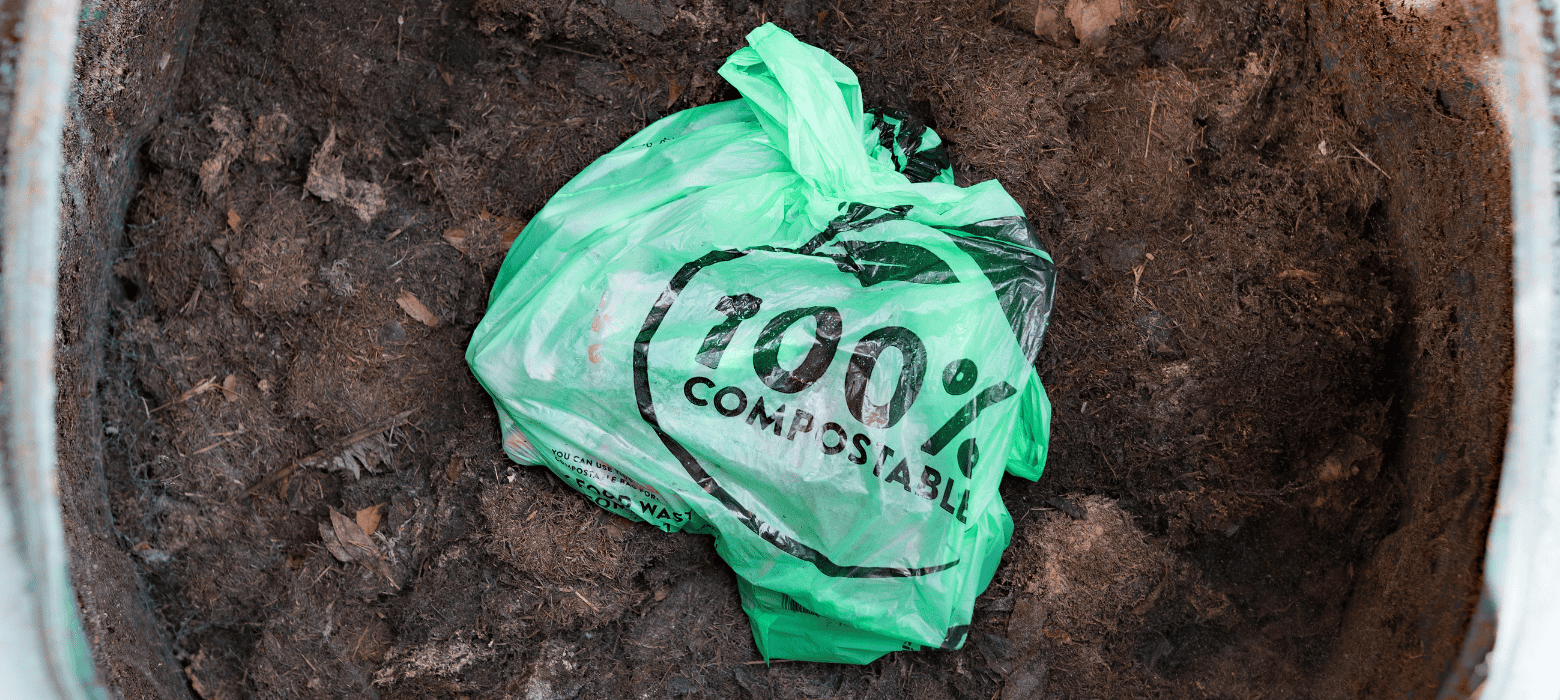
International Plastic Bag Free Day presents a pivotal opportunity for businesses to demonstrate their commitment to environmental sustainability and lead by example in reducing plastic waste.
Celebrated on July 3rd, this day encourages organizations around the world to eliminate single-use plastic bags and adopt eco-friendly alternatives such as compostable bags. This day serves as a call to action to implement innovative practices that not only benefit the environment but also resonate with consumers. Let’s explore actionable strategies your business can employ to celebrate International Plastic Bag Free Day, showcasing your dedication to sustainability and inspiring others to follow suit.
Understanding International Plastic Bag Free Day
History and Significance
International Plastic Bag Free Day was launched by Zero Waste Europe in 2009. The movement aims to raise awareness about the environmental impact of single-use plastic bags and to promote sustainable alternatives like compostable bags.
The significance of this day lies in its ability to mobilize businesses, governments, and individuals to take tangible steps towards reducing plastic waste. The day also serves as a reminder of the urgent need for collective action to address the plastic pollution crisis, encouraging the adoption of long-term solutions for a greener future. By adopting certain practices, businesses can play a crucial role in mitigating environmental damage and fostering a culture of sustainability.
Global Impact of Plastic Bags
Every year, approximately 19-23 million tons of plastic waste enter oceans, rivers, and lakes. This is equivalent to dumping 2,000 garbage trucks full of plastic into these environments daily (UNEP – UN Environment Programme) (US EPA).
Plastic bags have a profound global impact, affecting ecosystems, wildlife, and human health. Annually, over 500 billion plastic bags are used worldwide, with less than 10% being recycled, leading to millions of tons of plastic waste. This waste often ends up in oceans, where it poses a deadly threat to marine life; sea turtles, birds, and fish ingest or become entangled in plastic debris, resulting in injury or death. More than 1,500 species of marine and terrestrial animals are known to ingest plastic, often mistaking it for food. This ingestion can lead to suffocation, starvation, and even death (US EPA).
Plastic bags also contribute to the degradation of natural landscapes, affecting soil and water quality. Plastic bags can take between 100 to 1,000 years to decompose in the environment, breaking down into microplastics that persist and pollute natural ecosystems for centuries (US EPA). On top of that, microplastics infiltrate food chains, impacting both wildlife and human health.
The production and disposal of plastic bags also exacerbate climate change due to the greenhouse gasses emitted during their lifecycle. Addressing this issue is essential for preserving biodiversity, protecting public health, and ensuring a sustainable future for the planet.
Role of Businesses in Sustainability
Businesses play a pivotal role in promoting sustainability and reducing plastic waste. By adopting sustainability practices, companies can significantly impact the environment and set industry standards.
Transitioning to alternatives like compostable bags or reusable bags is a critical and simple step businesses can take to minimize their environmental footprint. Implementing such changes not only contributes to the health of the planet but also appeals to an increasingly eco-conscious consumer base. Plus, businesses can influence supply chains by demanding sustainable practices from suppliers and partners.
Education is key. Through dedicated education programs, passionate advocacy, and the implementation of responsible practices, businesses hold significant potential to drive systemic change and foster a culture of sustainability that permeates their entire industry.
By embracing these methods, companies can fundamentally alter the way both they and their customers approach environmental responsibility. This not only includes the reduction of plastic waste but also extends to broader sustainable practices such as energy conservation, sustainable sourcing, and waste reduction strategies. In doing so, businesses can play a pivotal role in leading the charge towards a greener future. As a result, International Plastic Bag Free Day becomes an essential milestone, not just in environmental efforts but also in an overall mission to integrate sustainability into every facet of operations. By marking this occasion with meaningful action, businesses can contribute to a larger movement that aims to reverse the detrimental impacts of plastic pollution and promote lasting environmental stewardship.
Implementing Eco-Friendly Alternatives
Benefits of Compostable Bags
Compostable bags offer numerous benefits over traditional plastic bags, making them an excellent choice for businesses committed to sustainability. Unlike conventional plastic, compostable bags from Emerald Ecovations are made from renewable resources such as corn starch or potato starch, which decompose under composting conditions. This reduces the environmental burden of plastic waste, as compostable bags break down into non-toxic components that enrich the soil.
Compostable bags significantly lower the risk of harm to wildlife and marine life, as they do not persist in the environment for centuries.
For businesses, adopting compostable bags can enhance brand reputation and demonstrate a genuine commitment to environmental responsibility. By integrating compostable bags into daily operations, businesses contribute to a circular economy and take meaningful steps towards a sustainable future.
Case Studies of Successful Implementations
Several businesses have successfully implemented eco-friendly alternatives, setting examples for others to follow.
For instance, major retail chain Tesco introduced compostable bags in its stores across the UK in 2019. This initiative replaced single-use plastic bags with compostable options, significantly reducing the company’s plastic footprint.
Another example is the California-based grocery store chain, Trader Joe’s, which eliminated plastic bags in favor of paper and compostable alternatives, resulting in millions of fewer plastic bags entering the waste stream annually.
These businesses not only saw a reduction in plastic waste but also received positive feedback from customers who appreciated their commitment to sustainability. Additionally, small businesses like Package Free Shop have built their brand around zero-waste principles, proving that sustainability can be a core business model. These case studies highlight the feasibility and benefits of transitioning to eco-friendly alternatives, demonstrating that sustainable practices are both impactful and achievable.
Steps for Transitioning Your Business
Transitioning your business to sustainable alternatives involves a series of strategic steps. First, conduct an audit of your current plastic usage to identify areas where compostable bags and other sustainable options can be implemented. Next, research and partner with suppliers that offer high-quality compostable products. Finally, educate your staff about the benefits of these alternatives and provide training on their proper use and disposal. Communicate your sustainability goals and new practices to your customers through various channels such as in-store signage, social media, and your website.
Consider launching a pilot program in select locations to test the effectiveness and customer reception of the new products. Collect feedback and make necessary adjustments before a full-scale rollout. Regularly review and update your sustainability practices to ensure continuous improvement.
Engaging Stakeholders and Customers
Educating Your Team and Customers
Educating both your team and customers is crucial for the successful implementation of eco-friendly practices. Start by organizing training sessions for your employees to ensure they understand the importance of sustainability and how to communicate this to customers. Provide them with detailed information on the environmental benefits of compostable bags and other sustainable products. Develop informative materials, such as brochures or infographics, that can be displayed in-store and shared on digital platforms to educate customers.
Hosting workshops or webinars on environmental topics can also engage and inform your audience. Transparency is key; keep your stakeholders updated on your progress and any challenges you face. By fostering a culture of sustainability, you not only improve internal practices but also inspire your customers to support and participate in your green initiatives.
Marketing Your Commitment to Sustainability
Effectively marketing your commitment to sustainability can amplify your efforts and resonate with eco-conscious consumers.
Start by integrating your sustainability goals and achievements into your brand messaging. Use your website, social media platforms, and newsletters to share stories and updates about your transition to compostable bags and other green initiatives. Highlight specific metrics, such as the reduction in plastic waste, to provide tangible evidence of your impact. Consider creating a dedicated sustainability section on your website where customers can learn about your eco-friendly practices and future goals. Collaborate with environmental organizations and participate in community events to further demonstrate your commitment.
Leverage customer testimonials and case studies to showcase positive feedback and real-world results. Consistent and transparent communication about your sustainability efforts can build trust, enhance brand loyalty, and attract new customers who value sustainability.
Building Partnerships for a Greener Future
Building strategic partnerships can significantly enhance your sustainability efforts and drive industry-wide change. Collaborate with suppliers like Emerald Ecovations who prioritize the environment and offer sustainable alternatives to everyday solutions.
Engage with environmental organizations and nonprofits to support community initiatives and stay informed about best practices and emerging trends. Partner with other businesses that share your commitment to sustainability to create joint programs or campaigns that amplify your collective impact. These partnerships can also provide valuable networking opportunities and resources to help you achieve your sustainability goals.
Consider joining industry groups or coalitions focused on environmental sustainability to collaborate on larger-scale projects and policy advocacy. By forming alliances with like-minded organizations, you can pool resources, share knowledge, and create a stronger, more unified approach to tackling environmental challenges. Building these partnerships not only enhances your business’s sustainability efforts but also contributes to a broader movement towards a greener and more sustainable future.
International Plastic Bag Free Day is an opportunity to address plastic pollution in your home and your workplace. Taking simple steps to address plastic bags in your workplace can make a global impact.
Related Articles
Our Mission and Innovations
Launched in 1997, our mission has been to end deforestation and plastic pollution by providing sustainable solutions for everyday essentials.
How does compost contribute to the sustainability of food production?
As the world moves towards more sustainable practices, composting is becoming a cornerstone in transforming food production. It leverages organic waste management to enrich soil, reduce pollution, and promote the recycling of nutrients. According to the Environmental...
Can you compost paper plates?
As of 2020, the United States generated approximately 292.4 million tons of waste, with only about 32.1% being recycled or composted. For leaders in the food service sector, it's crucial to understand your role in this dynamic and explore options for sustainable...
Are Paper Plates Compostable? A Simple Guide
Are paper plates compostable? It depends on the type of paper plates you buy. Emerald Ecovations Tree-Free plates are eco-friendly and commercially compostable.
Discover the Advantages of Kraft Paper Bags for Eco-Friendly Packaging
Explore the advantages of kraft paper bags for sustainable packaging, highlighting their eco-friendliness, versatility, and positive impact on the environment.
The Truth About Cheap Laundry Detergent
“Discover the hidden truths about cheap laundry detergent. Uncover its effectiveness, potential drawbacks, and how it impacts your laundry routine and budget.
“






